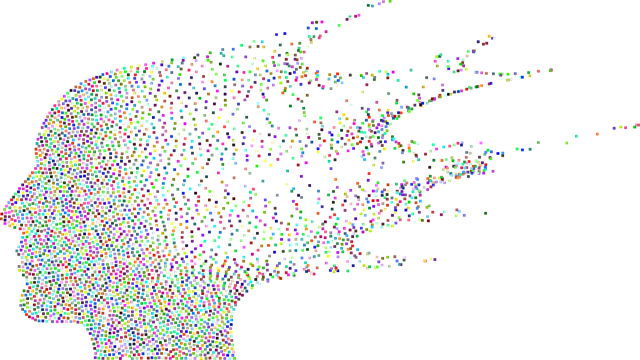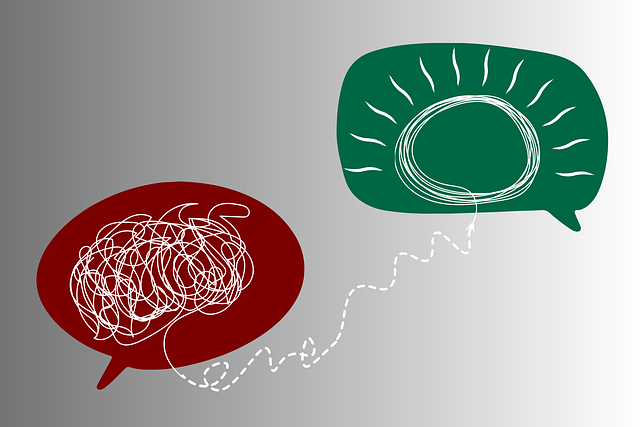Denver's progress in gender identity acceptance is accompanied by challenges, demanding comprehensive public awareness campaigns to educate and empathize. Denver Gender Identity Therapy leads these efforts with personal stories, factual information, and evidence-based stress reduction techniques. Targeted campaigns on social media, local newspapers, and community boards reach diverse audiences, fostering understanding and support for mental health. Success is measured through attitude shifts, behavior changes, and improved well-being within the community, allowing Denver Gender Identity Therapy to adapt and refine its initiatives based on impact assessment.
In Denver, as in many cities worldwide, navigating the complex landscape of gender identity requires nuanced understanding and inclusive public discourse. This article explores the crucial role of public awareness campaigns in fostering acceptance and support for individuals seeking gender identity therapy. We delve into strategic messaging, target audience analysis, media channel selection, and measurement techniques to enhance the impact of such initiatives, specifically focusing on Denver’s unique context. Understanding these components is key to empowering positive change in society’s perception of gender identity.
- Understanding Denver's Gender Identity Landscape: Uncovering the Need for Awareness
- Crafting Effective Campaign Messages: Strategies to Engage and Educate
- Target Audience Analysis: Reaching the Right People with the Right Information
- Choosing the Right Media Channels: Maximizing Impact through Diverse Platforms
- Measuring Success and Evaluating Impact: Assessing the Effectiveness of Public Awareness Campaigns
Understanding Denver's Gender Identity Landscape: Uncovering the Need for Awareness

Denver’s landscape regarding gender identity is a complex tapestry woven with both progress and lingering challenges. As a growing metropolis, it has seen an increase in discussions around diverse gender identities, yet misunderstandings persist. This creates a pressing need for comprehensive public awareness campaigns that can educate and foster empathy within the community.
The importance of such initiatives cannot be overstated, especially as mental health professionals in Denver Gender Identity Therapy note the rising rates of burnout among individuals struggling with their identity. Burnout prevention, coupled with promoting emotional intelligence and mindfulness meditation, could significantly benefit this demographic. By increasing public awareness, Denver can move towards a more inclusive atmosphere where everyone feels seen, understood, and supported, ultimately enhancing the overall well-being of its residents.
Crafting Effective Campaign Messages: Strategies to Engage and Educate

Crafting compelling campaign messages is an art that goes beyond catchy slogans. Effective public awareness campaigns about sensitive topics like gender identity need to educate and engage audiences in meaningful ways. At Denver Gender Identity Therapy, we understand this challenge. A successful strategy involves telling powerful personal stories interwoven with factual information. Sharing experiences of individuals who have navigated their gender identities can humanize the issue, fostering empathy and understanding among diverse communities.
Moreover, incorporating evidence-based Stress Reduction Methods and Depression Prevention techniques within these campaigns can empower individuals to prioritize emotional well-being promotion techniques. By presenting actionable steps alongside inspiring narratives, campaigns become tools for positive change, encouraging open conversations and supporting those exploring their identities.
Target Audience Analysis: Reaching the Right People with the Right Information

Effective public awareness campaigns for issues like Denver Gender Identity Therapy require a thorough understanding of the target audience. Identifying the right people to reach is crucial for delivering the intended message successfully. This involves demographic analysis, considering age groups, gender identities, and cultural backgrounds, to tailor content that resonates with each segment. For instance, mental illness stigma reduction efforts might focus on younger adults through social media campaigns, while empathy-building strategies for conflict resolution techniques could target communities directly affected by identity-based discrimination.
By analyzing audience needs and behaviors, campaign creators can ensure their messages are not only heard but also understood and internalized. This precision allows for more impactful initiatives that foster better mental health support, promote empathy, and facilitate productive conflict resolution. Such targeted approaches are key to making a lasting difference in society’s perception of sensitive topics like gender identity therapy.
Choosing the Right Media Channels: Maximizing Impact through Diverse Platforms

In the realm of public awareness campaigns, especially for sensitive topics like gender identity and mental health, selecting the optimal media channels is paramount to reaching and impacting the target audience effectively. For issues close to home, such as Denver Gender Identity Therapy, leveraging diverse platforms can amplify the message and ensure a broader reach. Social media, with its vast network of users, allows for targeted ads and engaging content that resonate with specific demographics. Additionally, incorporating video testimonials from individuals who have benefited from therapy services can be incredibly powerful, fostering empathy and understanding among viewers.
Diversifying media choices also involves considering the unique needs and preferences of different age groups and cultural backgrounds. For instance, while social media dominates the younger crowd, traditional media like local newspapers or community bulletin boards might be more accessible to older adults. Incorporating various mediums ensures that the campaign’s message not only reaches a broader spectrum but also resonates with each audience member on their level, ultimately enhancing the overall impact of the public awareness initiative.
Measuring Success and Evaluating Impact: Assessing the Effectiveness of Public Awareness Campaigns

Measuring success and evaluating impact are crucial aspects of public awareness campaigns, especially when aiming to create positive changes in communities. For Denver Gender Identity Therapy and similar initiatives, assessing effectiveness means going beyond simple reach or attendance numbers. It involves delving into how the campaign has influenced attitudes, behaviors, and overall well-being within the target audience. This could be achieved through pre- and post-campaign surveys, focusing on understanding shifts in perceptions related to mental health, self-care routine development for better mental health, and anxiety relief.
For instance, evaluating the impact of a campaign providing crisis intervention guidance might reveal increased help-seeking behaviors among individuals facing mental health crises. This data could underscore the success of such initiatives in fostering safer and more supportive environments. By measuring these intangible yet significant outcomes, organizations like Denver Gender Identity Therapy can adapt their strategies, ensuring that future campaigns are even more impactful and better aligned with the needs of the communities they serve.
Public awareness campaigns play a pivotal role in shaping societal understanding, especially regarding complex topics like gender identity. By employing strategic messaging, precise target audience analysis, and diverse media channels, initiatives like Denver Gender Identity Therapy can gain traction and make a lasting impact. Measuring success through comprehensive evaluation ensures that these campaigns not only raise awareness but also foster positive change. This structured approach is key to creating an inclusive environment where everyone feels seen, understood, and supported.














